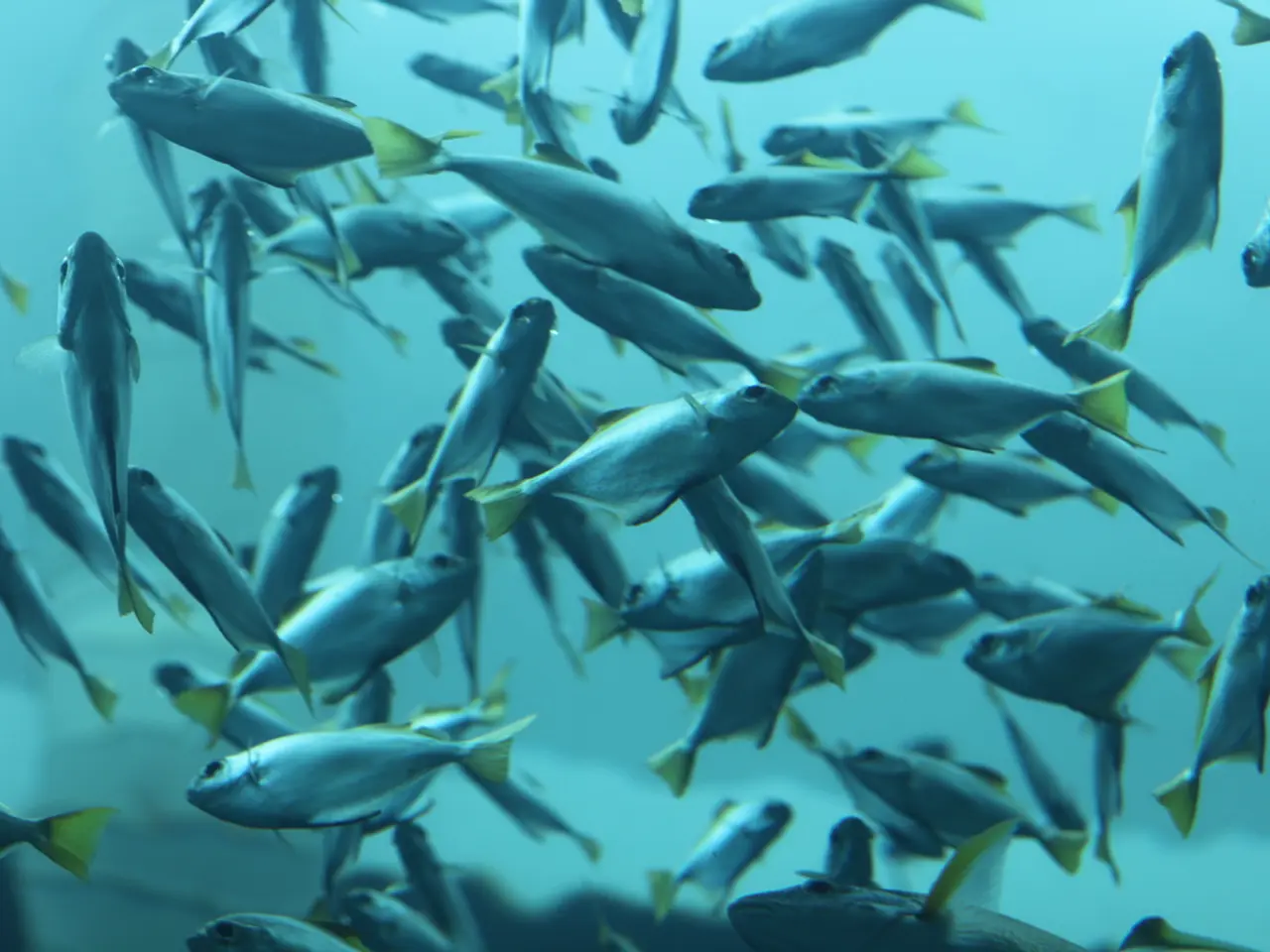Savoring Aquatic Delights: Exploring Varieties, Preparation Ideas, and Nutritional Insights of Seafood Favorites
In the quest for a balanced diet, choosing the right types of fish can significantly impact one's health and the environment. Here's a detailed overview of some of the best fish choices, their nutritional profiles, mercury levels, and sustainability notes.
### Best Fish Choices and Their Nutritional Profiles
| Fish Type | Key Nutrients | Mercury Level | Sustainability Notes | |-------------|-----------------------------------------------|------------------------|---------------------------------------------| | **Mackerel**| High in omega-3 fatty acids, vitamin B12, magnesium (20% RDA per 3 oz), protein | Low mercury | Generally sustainable, especially smaller species like Atlantic or Pacific mackerel | | **Herring** | Rich in omega-3s, vitamins E, D, B12, and minerals such as selenium, iodine, calcium, and iron | Low mercury | Wild-caught herring is typically sustainable | | **Sardines**| High omega-3s, protein, vitamin D (70% DV per 125g tin), calcium (from bones) | Low mercury | Sustainably harvested, often from well-managed fisheries | | **Clams** | Extremely high vitamin B12 (3000% DV per 3 oz cooked), protein, minerals | Low mercury | Sustainable bivalve species, environmentally friendly | | **Anchovies**| High omega-3s, protein, good source of calcium and iron | Low mercury | Small fish with short lifecycles, generally sustainable | | **Trout** | Moderate omega-3s, protein, mild flavor | Low to moderate | Farmed trout can be sustainably raised if certified |
### Mercury Considerations Smaller, shorter-lived fish like mackerel, sardines, herring, and anchovies accumulate less mercury compared to large predatory fish such as bigeye tuna or swordfish. Clams and other shellfish have very low mercury levels. Choosing certified sustainable and mercury-tested products reduces risks further.
### Sustainability Insights Small oily fish such as sardines, herring, and anchovies are more sustainable due to their rapid reproduction and lower position in the food chain. Bivalves like clams and oysters are environmentally friendly as they filter and clean water. Wild-caught mackerel and sustainably farmed trout are good choices. Algae-based omega-3 supplements provide a sustainable alternative to fish oil, avoiding marine contaminant risks, though they offer omega-3 rather than whole fish nutrition.
### Cooking Methods Grilling, baking, broiling, and pan-searing retain omega-3 fats and flavour without adding unhealthy fats. Steaming and poaching are gentle methods that preserve nutrients. For oily fish like sardines and mackerel, light grilling or broiling enhances flavour. Shellfish like clams are best steamed or in soups to preserve minerals and vitamins. Smoked or tinned varieties offer convenience while maintaining nutrition.
### Summary For optimal health, mercury safety, and sustainability, prioritize:
- Small oily fish: mackerel, herring, sardines, anchovies - Shellfish: clams, oysters - Certified sustainable tuna (skipjack) and farmed trout - Use gentle cooking methods like grilling, steaming, or broiling to preserve nutrients - Consider algae-based omega-3 supplements for sustainable omega-3 intake without mercury risk
These fish provide protein, heart-healthy omega-3 fatty acids, essential vitamins like B12 and D, and minerals such as calcium, iron, and magnesium while minimizing exposure to mercury and supporting sustainable seafood practices.
The Monterey Bay Aquarium's Seafood Watch program provides resources to help choose sustainable and healthful types of fish. Sardines are another oily fish rich in calcium, iron, selenium, vitamin B-12, and omega-3 fatty acids. Mackerel can be poached with wine, onion, and pepper. Boned and filleted herring can be easily baked, pan-seared, or grilled. Oily fish contains omega-3 fatty acids, which are beneficial for heart health. A 100 gram serving of tuna contains 22 grams of protein. Some people should avoid tilefish from the Gulf of Mexico, shark, swordfish, and king mackerel due to high mercury levels. Canned sardines can add flavour and texture to a salad. Smaller varieties of mackerel, like Atlantic and Spanish mackerel, are better choices due to lower mercury levels. Farmed rainbow trout contains omega-3s and 4.30 micrograms of vitamin B-12. Cod is a flaky, white fish that is low in fat and calories, and high in protein. Tuna can be easily prepared by brushing a tuna steak with olive oil, sprinkling it with salt and pepper, and searing it on medium-high heat. The United States Department of Agriculture recommends that most people eat seafood twice weekly as part of a balanced diet.
[1] https://www.montereybayaquarium.org/cr/seafoodwatch [3] https://www.seafoodwatch.org/cr/seafood-recommendations [4] https://www.fda.gov/food/buy-store-serve-safe-food/advice-about-eating-fish
- Mackerel, rich in omega-3 fatty acids, vitamin B12, magnesium, and protein, has a low mercury level and is generally sustainable.
- Herring, abundant in omega-3s, vitamins E, D, B12, and minerals like selenium, iodine, calcium, and iron, has a low mercury level and is typically sustainable when wild-caught.
- Sardines, high in omega-3s, protein, vitamin D, calcium, and sustainable, are often from well-managed fisheries.
- Clams offer extremely high vitamin B12, protein, and mineral content, have a low mercury level, and are sustainably harvested from bivalve species.
- Anchovies, another small fish with low mercury levels, provide high omega-3s, protein, calcium, and iron.
- Trout, moderately rich in omega-3s and protein, can be farmed sustainably if certified.
- Mercury-laden fish, such as bigeye tuna or swordfish, should be avoided compared to smaller, shorter-lived fish like mackerel, sardines, herring, and anchovies.
- Sustainable and mercury-tested products can help lower risks further.
- Smoked or tinned varieties of fish can offer convenience and maintain nutrition without compromising on flavor or nutrients.
- Algae-based omega-3 supplements present a sustainable alternative to fish oil, providing omega-3 without marine contaminant risks.
- Verifying sustainable seafood practices is crucial for a health-and-wellness lifestyle, and resources like the Monterey Bay Aquarium's Seafood Watch program can aid in making informed choices.
- For optimal health, it is essential to prioritize oily fish, shellfish, and certified sustainable tuna or farmed trout, opt for gentle cooking methods that preserve nutrients, and consider algae-based omega-3 supplements for a balanced diet that promotes fitness-and-exercise, nutrition, and a healthy-cooking lifestyle.




